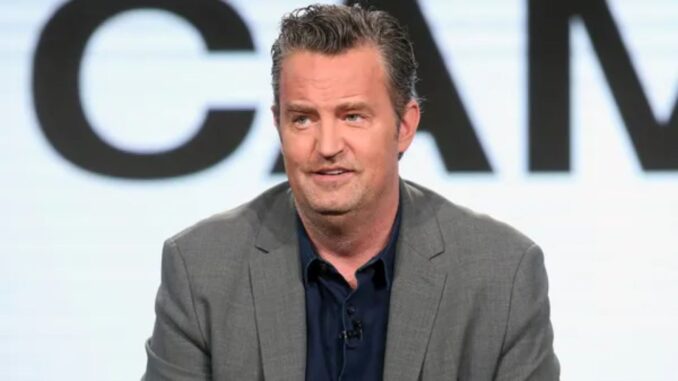
What Happens to Matthew Perry’s Estate, Including His Friends Residuals? Legal Experts Explain (Exclusive)
The beloved ‘Friends’ actor died on Oct. 28 at the age of 54
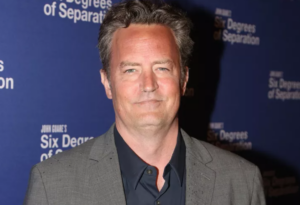
In the wake of Matthew Perry’s heartbreaking death at the age of 54 on Oct. 28, the beloved Friends actor leaves behind a sizable estate.
Perry’s estate includes all of his assets: anything he owned, like real estate or property, and anything he had a right to receive from, including residuals from Friends.
Copyrights, trademarks, his name and likeness and royalties (like those from his 2022 memoir Friends, Lovers, and the Big Terrible Thing, for example) are included as well, as are any of his investments, cash and securities.
According to California-based estate lawyers David Esquibias, Laura Zwicker and Jonathan Forster, there are a few different ways Perry’s estate could be handled.
Below, the three experts lay out the possible options, according to the law, to PEOPLE.
What happens to Perry’s residuals?
Perry will continue to receive residual payments from Friends even after his death, but the question now becomes who will inherit them.
“The guild and the unions allow you to list a beneficiary. It’s not the most common route, but that is certainly a route,” says Forster. “So he could have listed specific beneficiaries of his residuals with the union industry and actors guild, the different guilds, that’s one option.”
Esquibias agrees, and explains that designating beneficiaries goes beyond just residual payments.
“In California, you can also designate a beneficiary to real estate, stock accounts, bonds, accounts, life insurance, IRAs, 401(k)s, CDs,” he says. “So if you have beneficiaries designated, then that will go to whoever you designated.”
But, if Perry chose not to list a specific beneficiary or beneficiaries for his residuals, then it’s more likely he indicated elsewhere where his residual earnings would go since “everything that he owned,” says Zwicker, “is going to be given to someone.”

Perry may have had a trust
“The more likely route is that he did a trust. A trust is not public record and we would not discover who the ultimate beneficiaries are, but the trust would lay out who would be entitled to all of his assets, which would include his residuals,” says Forster. “He may have specifically carved out the residuals to go to one person or a category of people. Or he may have just said, all of my assets are divided into shares for these people, and they would just split it up.”
An added benefit of trusts is that they’re private, meaning the transactions between the deceased person and the person inheriting the estate is not available to the public like it would be in probate court (which is where the litigation of Perry’s estate will take place if he did not plan for his death in any way, shape or form).
“Whenever someone does a trust in the state of California, we fund our trust during lifetime, which means that clients would transfer their assets into the trust so that when they pass away, the assets are distributed in accordance with the provisions of the trust,” says Forster.
In other words, Perry’s trust (or trusts) would explicitly dictate “who gets what,” says Esquibias.
“Assuming Perry did something like that, then his trust, which will read much like a will, says who receives and at what time. So once the bills are paid, final expenses, funeral expenses, final illness expenses, once all that is paid, then [what you’re left with] is the net distributable amount.”
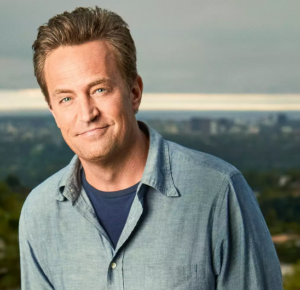
What if Perry had a will?
Both wills and trusts “provide direction as to who’s in control of your assets, and then who gets to benefit from your assets when you die,” says Zwicker.
The big difference between the two is if you have a will, a court will be involved, and “there’ll be a court supervised probate proceeding in which your will will be submitted to the court and will become a matter of public record. And then there’ll be an inventory of all of your assets that will be filed with the court, and that will also become a matter of public record,” she says. “So clearly anyone who is thinking does not pass their assets through a will because everything becomes public.”
Forster agrees with Zwicker’s assessment, adding that a will “is probably the least likely option” because of the publicity.
Wills and trusts can work together, however, for a more streamlined and private process.
“Most people who are well advised would have a will and a trust because the trust only operates on assets that you’ve put inside the trust,” says Zwicker. “So you can think of the trust as a box with rules. You put your stuff in the box and the rules govern. If you’ve left something out of the box, we need our will.”
The most common type of will in a case like Perry’s would be a “pour over will,” which works in conjunction with the trust, explains Forster.
“So as part of a traditional estate plan in California, you would do a trust, you would attempt to fund your trust with all of your assets during your lifetime, and then you would also do a pour over will
The most common type of will in a case like Perry’s would be a “pour over will,” which works in conjunction with the trust, explains Forster.
“So as part of a traditional estate plan in California, you would do a trust, you would attempt to fund your trust with all of your assets during your lifetime, and then you would also do a pour over will to deal with any straggler assets,” says Forster. “A pour over will is like pouring in assets, and the will would simply say, ‘I leave all of my assets to the trust.’ So if there are assets that for whatever reason didn’t make their way into the trust, the will would pour those assets into the trust.”
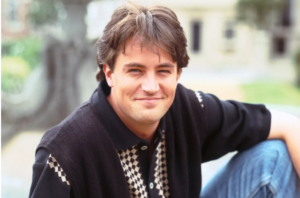
Without a will or trust, Perry’s estate will be litigated in probate court
“If he doesn’t have an estate plan whatsoever, if he never did a will, never did a trust, never did anything, then it would go to probate court to determine who’s entitled to the assets and the court would make a determination … and it would all be public, and it would follow the California law of intestacy for people that die without an estate plan,” says Forster.
So, what’s the law of intestacy, one might ask?
According to Zwicker, it’s simply the rule that says “if you have no trust and you have no will, here are the people who are entitled to share in your assets when you die.”
And, because everything that happens in probate court is public, “it’s very uncommon for [probate court] to be done intentionally. More likely, you have celebrities that aren’t thinking about planning for their death. They’re thinking they’re going to live a long and happy and healthy life, and they just never got around to actually doing their estate plan,” says Forster of how this scenario might arise.
The publicity of probate court may deter some, but Esquibias raises an interesting point about how celebrities may feel about their estate planning.
“Maybe people who are very wealthy want that kind of transparency. They want people to see what’s going on so that nobody’s stealing from them, so nobody’s trying to do anything or make backdoor under-the-table deals. Sometimes people really want the probate process and they say it’s worth the cost, it’s worth the expense. And sometimes a calculated decision is made in advance: I’m not going to do a trust,” he says.
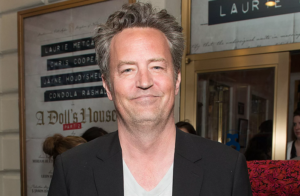
It’s possible Perry’s estate will pass to his parents
Often, people set up trusts and/or designate their spouse or children as the beneficiaries.
Perry was unmarried and didn’t have any children, so in his case, the people who would be receiving his estate are possibly his two parents, John Bennett Perry and Suzanne Morrison, says Forster.
John and Suzanne welcomed Matthew in 1969, though the two split less than a year later. Both John and Suzanne went on to remarry and welcome more children with their respective partners: Suzanne wed Dateline’s Keith Morrison in 1981, while John married wife Debbie the same year.
“You can leave your assets any way you choose. So you could say, I wanted my trust to be divided seven ways. One for each parent and one for each sibling,” explains Forster. “Perry’s trust would lay out who his beneficiaries are, and he may have specifically carved out the residuals to go to one person or a category of people. Or he may have just said, all of my assets are divided into shares for these people, and they would just split it up.”
If his assets do not go to his parents, its also possible that the estate may go towards The Matthew Perry Foundation, which was established last week to support those suffering from substance abuse.
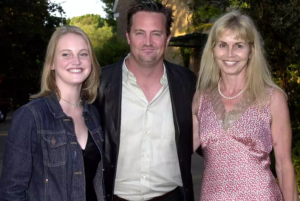
If his parents choose to “disclaim” the inheritance, his estate will pass to his half-siblings
A potential problem, however, arises with different levels of estate taxation. The estate will be taxed at Perry’s level, and then, hypothetically, would be taxed again at his parents’ level(s) when they die should they inherit his wealth in the meantime.
Should his parents wish to avoid that second taxation, they can do what’s called “disclaiming” the inheritance, says Esquibias, which they would need to do in writing.
“A smart thing for his parents to do is to what’s called disclaim. You disclaim or reject the inheritance that’s coming your way. And sometimes people will put in writing, well, if I leave you something and you disclaim it, then I get to direct where it goes. But if there’s nothing in writing, then the law gets to direct where it goes. And in that case, it’ll go to his parents’ children.”
Zwicker explains that Perry’s parents might opt to do this if they have plenty of assets already and would rather Perry’s assets to go to his siblings.
“They would say, ‘Hands up, I don’t need this.’ For tax purposes, to avoid a gift from them, that disclaimer has to happen within nine months of Matthew’s passing and before they receive any benefits from the assets.”
Perry had five half-siblings between his two parents: Caitlin, Emily, Will and Madeline Morrison on his mother’s side, and Maria Per
